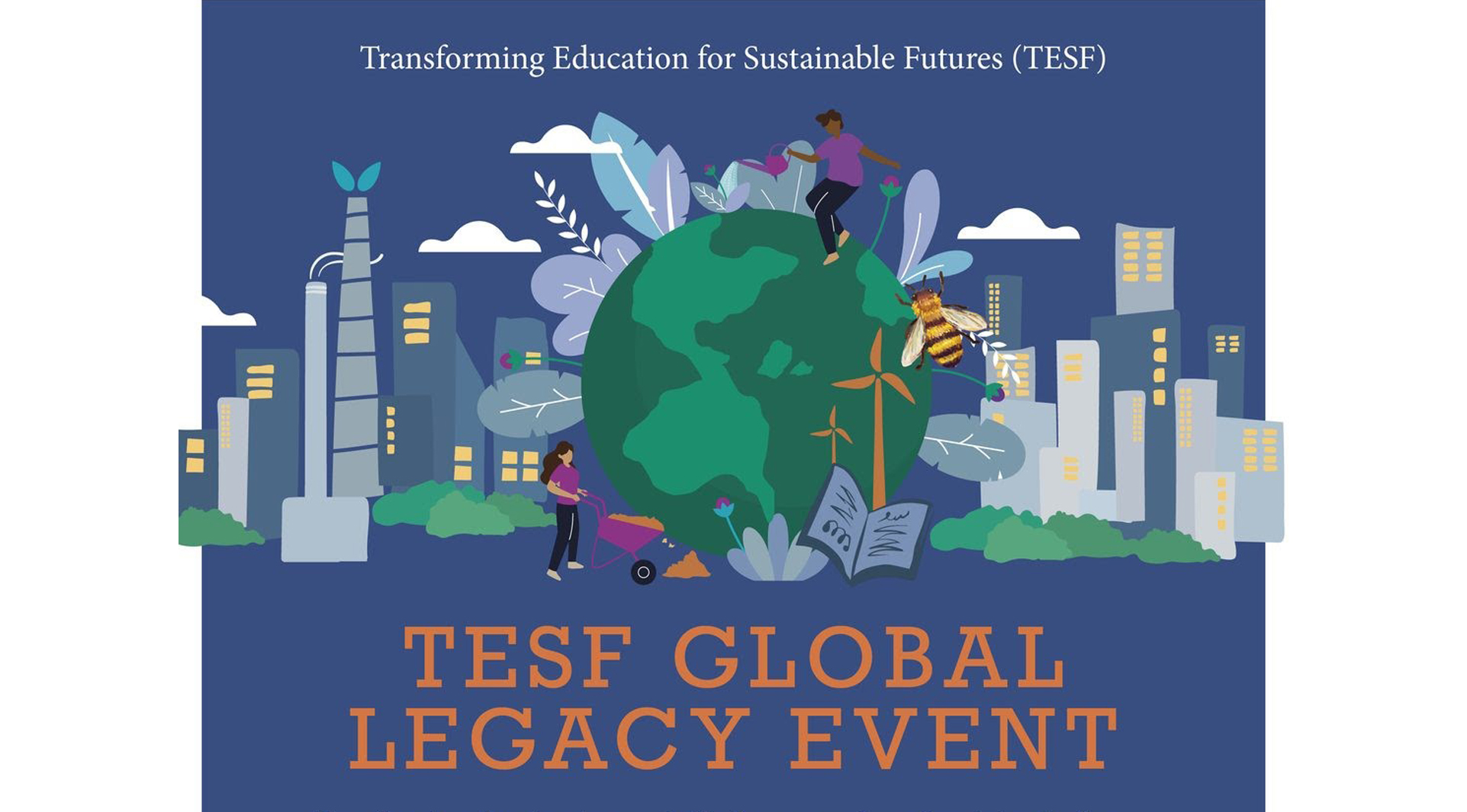Event: 17 July - Transforming Education for Sustainable Futures (TESF) Global Legacy Event
Transforming education for sustainable futures requires reimagining the futures of education together.
What is transformative education and how does it look from the Global South?
How can co-engaged research advance a new social contract for education?
Join TESF as they speak to these two critical dimensions of contemporary educational policy, and as they give meaning to policy in and through practice by sharing key insights and outputs gained from the TESF network. The event will take place on July 17, 2023 at 08:00 (BST/London)
See below the remarks from Moira V.Faul, NORRAG’s Executive Director.
Thank you. Leon and thank you to all of you for the invitation to speak today and also the invitation to listen to everything that’s gone ahead. It has been really thought provoking in terms of what it is that this could mean for this work that’s being done now and also what can be done in the future. This is really a reflection on our place and role in the discussion on development that is unfolding in several parts of the world. And how we might actually take that forward in generative ways. And generative here, really thinking about how this actually is about sustaining life in the broader sense of the term, and also our capacities to respond to the needs of life.
First, we are at an inflection point. Phrasing this as an inflection point is probably the least alarmist way that we can think about the state of the world that we are in, and that we are also leaving for future generations. And really in terms of this work that has been done in the TESF project, I think it’s going to be really fascinating to see how it is that these kinds of processes, can be applied to other agendas. Critically, with those agendas coming from the the people in the places where the work is being done.
Secondly, we have a great deal of work in education on pedagogy of the oppressed.
Is there work that could be continued also in terms of the pedagogy of the oppressor?
Whether it’s deliberate or not deliberate (institutional, structural) oppression, but actually how do we think about remaking these power relations. How do we actually work with those who have power, those who work with power – in order to actually get power to be wielded in a useful and positive way or more importantly, yielded.
Third, in research it’s about letting go of this idea of data being raw materials that are collected in – or extracted from – the South and then manufactured in the North. But actually making sure that that is as far from our practice as it could possibly be and working on how we then represent our work going forward. In terms of NORRAG’s work last year, in our annual report we were very proud that 100% of our knowledge products and activities included experts from underrepresented groups. And that is a metric that we are holding ourselves to in terms of thinking about the seats at the table, who is represented and also which knowledges are underrepresented as well.
Finally, I think you’ve touched on in really useful ways this idea of complexity and systems thinking and systems approaches. In the last couple of years we have seen a lot of people talking about systems; about moving from sector to systems when talking about education.
Unfortunately, in the vast majority of these cases, it feels like someone’s done “Control F” in a document, find “sector” and just global replace with “system” because the solutions that are being produced are not systemic, the relationships that are being actually talked about are not addressing some of those systemic issues that need to be addressed. One of the things from last year that I was most proud of was a quote from one individual in an activity that we ran through the KIX regional hub for Europe Asia and Pacific, and they said that this activity helped them realize that it’s not just about research and knowledge and expertise in English, from renowned organizations. Instead they said that through our actiity they realized that their knowledge was valid, and that they could contribute a lot – to their education system and beyond.
And this is the kind of work that I can see is coming through in your project as well. Thank you for your work on this project; it’s fascinating to be part of this conversation.

